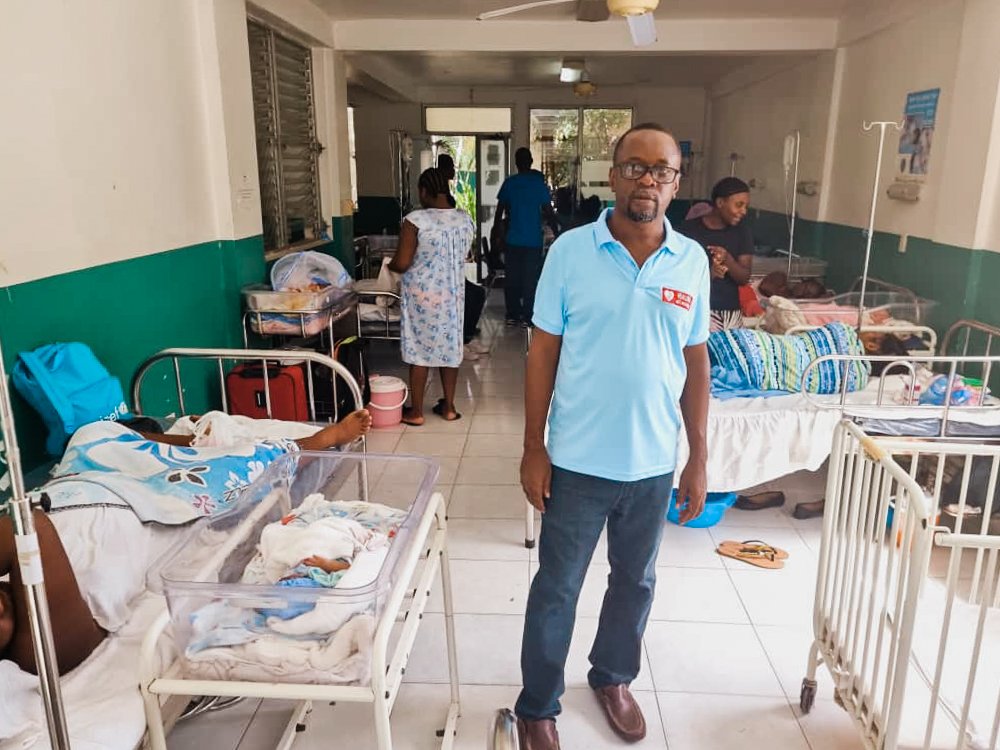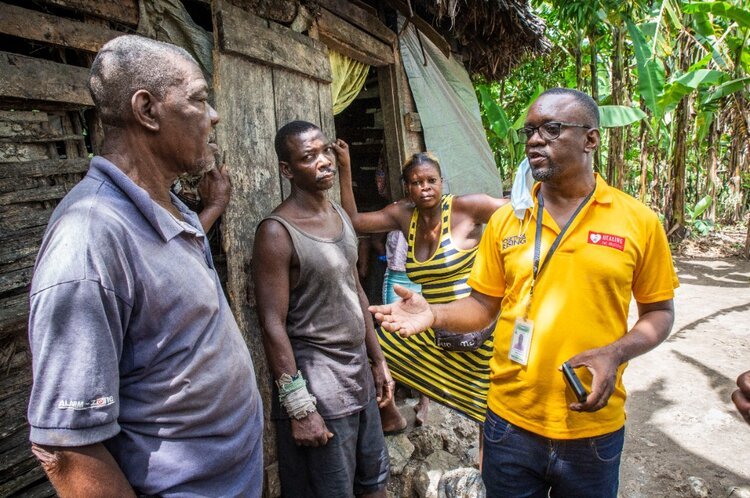“The poor people are stuck with the Haitian government. The government doesn’t care if they have healthcare, food, water, or education—they just don’t care.”
This is a direct quote from Dr. Jean Fritz Jacques, Healing Art Missions’ Medical Director in Haiti. He recently met with the HAM Leadership Team via Zoom to share his thoughts about the increasing lawlessness in parts of Haiti and an update on how the HAM medical team is working to continue to provide services and hope. A summary of that conversation follows.
What is the current situation like for medical providers in Haiti?
Dr. Jacques: The situation is getting worse in many places in Haiti, particularly in Port-au-Prince and the Artibonite region. There are many regions where you simply don’t want to go and, particularly, don’t want to go to at night.
A major healthcare provider in Port-au-Prince, GHESKIO, recently closed its doors in protest of the kidnapping of two members of its medical team and a large rural hospital, Hospital Albert Schweitzer, in the Artibonite region has closed its doors to everything but the most critical of cases due to instability.
The general hospital in Port-au-Prince has been closed since December and, in January, a Medicines Sans Frontiers- supported hospital in Carrefour closed after armed gunmen killed a patient.
So, the situation is dangerous in some regions of the country. Unfortunately, the primary area of trouble is Port-au-Prince, which is the main port, so this impacts the rest of Haiti.
What about the rest of Haiti? What is it like elsewhere?
Many regions of Haiti are safe and just want to live in peace. I think, sometimes, people hear about what is going on Port-au-Prince and assume the whole country is overrun by violence, but it’s mostly just the capital region and a few other small areas across the country. The vast majority of Haiti is not like that. When our team is working in the Nippes region, for example, at the hospital in Miragoâne, there is no gang activity. People are out at all times of day and night just living their lives. The same is true when we are working in Port-Salut—it is very peaceful.
But, due to the unrest in Port-au-Prince, the whole country is suffering from a shortage of food and necessary supplies. Port-au-Prince is the main port for the whole country, and Haiti relies on imports for most of its goods. This situation is very serious and continues to get worse.
Can you describe what it is like to get food and supplies?
It’s bad all over Haiti and people everywhere are struggling to find food. Just recently I noticed a chicken product that I used to purchase for 3000 Haitian gourdes ($20.54) now costs 20000 ($136.98). I don’t know how people are going to continue like this or where they will find the money to feed themselves and their families.
Getting supplies is also getting increasingly difficult. It’s not just HAM—all medical providers are struggling to find basic supplies like wound wraps, surgical draping, and even some important medications.
I think the international community is starting to understand that the Haitian government is not going to step in to help with these problems. I hope there are good people who are willing to intervene on behalf of the everyday Haitian people.
Why do you stay?
Lots of people have left or are trying to get out of Haiti. The people who are leaving are the ones who can afford to leave—the professional class. Haiti is at risk of losing its entire professional class due to the instability.
The poor can’t leave. They are stuck here and are at the mercy of a government that does not care about them. I want to stay because it gives them hope.
When Healing Art Missions’ medical team goes into Miragoâne, people seek us out. We are providing 100% of orthopedic care for that region, so if someone has an accident or a fracture, they need us to be there. We are also bringing 100% of the anesthesiology drugs to that region for people who need surgery.
The director of Hôpital Ste. Therese de Miragoâne told me that they would have closed their doors if it wasn’t for us. If this happens, there is no healthcare for the people of Nippes.
This is why I stay—the worse things get in Haiti, the more responsibility organizations like HAM have to the poor. We are the only ones helping them.
We can’t save the whole country, but we need to play the part that we can.
What does the future hold?
No one knows what is going to happen in Haiti, but we do know that we are going to have a problem if medical professionals keep leaving the country. That is why we are working to help develop the pipeline for the next generation of healthcare providers in Haiti.
Since the General Hospital in Port-au-Prince closed in December, I have been bringing medical residents out into the field with us to Nippes and Port Salut. Each month we bring a different resident to give them real-world experience. We currently have surgery, orthopedic, and anesthesiology residents working side-by-side with our team.
We may not be able to stop people from leaving Haiti, but hopefully we can help develop the talent that will fill their shoes when they are gone.
Any concluding thoughts?
I wish I could show HAM supporters the look on patients’ faces when our team arrives in their area. They know they are going to get quality medical services from people who care about them. We have a good reputation and when we arrive in an area it gives people hope.
I want to thank everyone for making that possible with their donations and support.






















